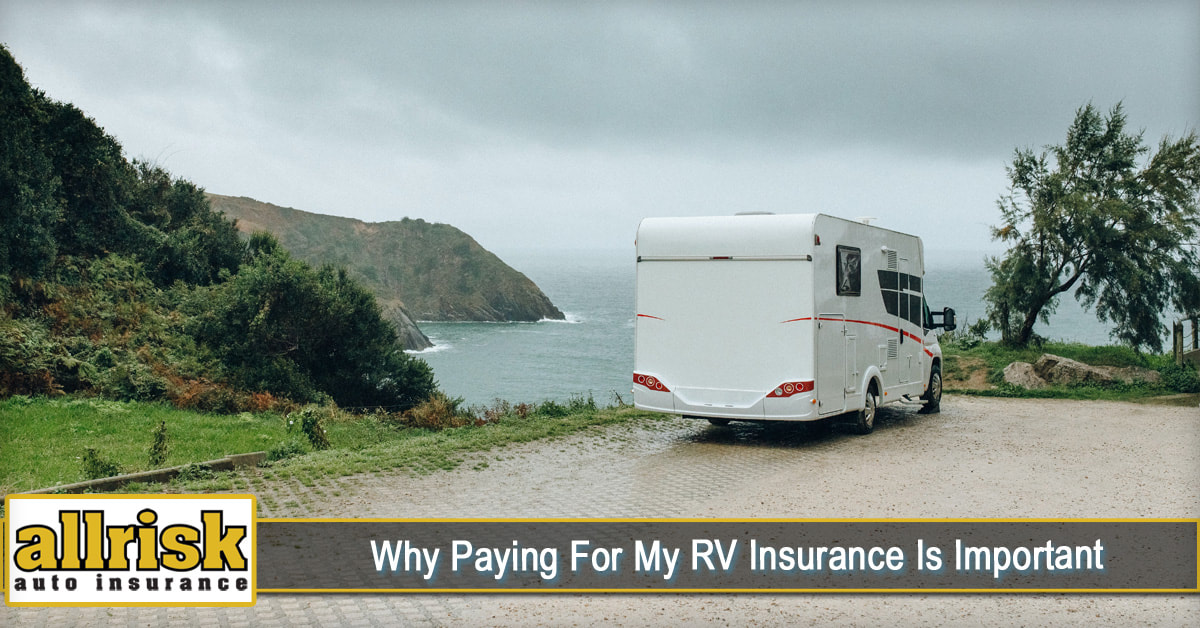AllRisk Auto Insurance, LLC Blog |
|
You can submit a claim with your insurance company if you damage your RV or injure someone else (and their property). Depending on the circumstances, your insurance provider may pay claims or damages up to the limit of your policy. To further understand how important it is to keep your RV insurance, we give you what you need to know about your policy. What are Recreational Vehicles (RV)?
There is no such thing as a one-size-fits-all recreational vehicle. There are numerous types (or classifications) of RVs available for rent or purchase. Therefore, it's crucial to know the differences between RV classifications because they may have various insurance needs. Class A RVs Motorhomes are another name for Class A RVs. They are the most spacious and feature-rich RVs and the most costly. Class A RVs resemble a huge bus and are often entered by a side door. Class B RVs Campervans are another name for Class B RVs. These RVs are substantially smaller and typically less luxurious than their Class A counterparts, but they are also much easier to drive. Class C RVs Class C RVs have a classic truck cabin where the driver sits and are constructed on a truck or van platform. Moreover, these vehicles have a raised roof that stretches over the cab and may be utilized for sleeping or storage. What is covered by RV Insurance? The following are the several forms of RV and camper insurance: For RVs:
For Camper Trailers:
Specialized Coverage of Your RV Insurance Companies typically offer specialist coverage in addition to the normal range of coverage on RV plans, which can be useful in the event of a loss. Your unique equipment and personal possessions may be pricey if you do not have coverage covered in your RV policy. These are some things you may not consider before filing a claim. Collision Coverage If you are in an accident, Collision Coverage will assist pay for the damages to your RV. Comprehensive Coverage If you live in your RV all year or use it regularly, you might choose Comprehensive Coverage, protecting you from non-collision incidents like theft or fire. Liability Insurance In most areas, liability insurance is compulsory, and it will cover any costs linked to property damage or injury to others if you are at fault. Emergency Expense Coverage Those who travel frequently may wish to consider adding Emergency Expense coverage to their policy. If your travel plans are disrupted, this will assist you with covering the costs of hotels and other expenses until you can resume your journey. Total Loss Replacement Suppose the loss of your RV would seriously impact you. In that case, Total Loss Replacement is an excellent alternative since it would compensate you for the entire original purchase rather than the depreciated value of the loss that happens during the first five years. Vacation Liability Coverage Vacation Liability Coverage may be an excellent choice if you intend to park your RV at a campsite or other area for an extended length of time. If someone is hurt at your campground or in your motorhome while off the road, this coverage will cover you. In Summary For many Americans, RV vacations are a common choice. They provide a welcome respite from the hustle and bustle of city and suburban life. Hence, it's essential to ensure you can relax and enjoy your vacation without fear of losing money. At AllRisk Auto Insurance, we aim to provide comprehensive insurance policies that make your life easier. We want to help you get the insurance that fits your needs. You can get more information about our products and services by calling our agency at (360) 693-4044. Get your free quote today by CLICKING HERE. Coverage discussed in this article is not guaranteed. Please contact our agents today to ensure that your needs are being met and learn more about your policy. We are happy to help!
0 Comments
Leave a Reply. |
Contact Us(360) 693-4044 Archives
July 2024
Categories
All
|

 RSS Feed
RSS Feed